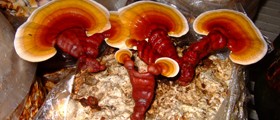
Quinine sulfate is a chemical compound which can be described as an alkaloid. It is a white, powdery, crystalline substance when it is in its pure form. It does not have any odor and its taste is rather bitter. Quinine sulfate is commonly used for numerous different sorts of medicinal purposes. It is very efficient when it comes to down to preventing and treating malaria, inflammatory conditions, painful sensations and fever. It is commonly obtained from the bark of the tree known by the name of cinchona, but nowadays it can also be synthesized in the lab too.
Quinine sulfate uses
Quinine sulfate has been known for its very potent antipyretic properties for a few centuries now. In the modern times, quinine sulfate is usually used for the treatment of malaria. Malaria is a disease triggered by a certain type of parasite which is medically referred to as plasmodium falciparum. This type of parasite is commonly carried by female specimens of mosquitoes. When the parasite enters the bodies by means of a mosquito bite it starts living in all different types of body cells. Quinine sulfate is very efficient in killing the parasites, even those who live in the red blood cells. For quite a long time, it was the only known cure for malaria. It is still used extensively, and sometimes it is used along with certain other types of medicaments.
Quinine sulfate can also be used for a large number of other medicinal purposes. It is very efficient in relaxing the muscles so it is commonly prescribed to all those who suffer from muscle cramps, facial palsy, restless leg syndrome and all other similar medical conditions. Quinine sulfate is also highly beneficial because of its extremely potent anti inflammatory properties. That is why it can come in very handy for all those who suffer from lupus or arthritis. Pregnant women should avoid using quinine sulfate because it may induce unwanted uterine contractions. Quinine sulfate is also commonly used for the treatment of babesiosis which gets transmitted by ticks. Quinine sulfate is also used for the preparation of tonic water. Nowadays it is mostly used as a cocktail. Like other types of medications, quinine sulfate may be associated with certain types of side effects such as irregular heartbeat, nosebleeds, faintness, blurred vision, breathing difficulties, swollen face, swollen tongue, swollen lips, hives, dizziness, headaches, unusual sweating, ringing in the ears, restlessness and nausea.

















Your thoughts on this
Loading...